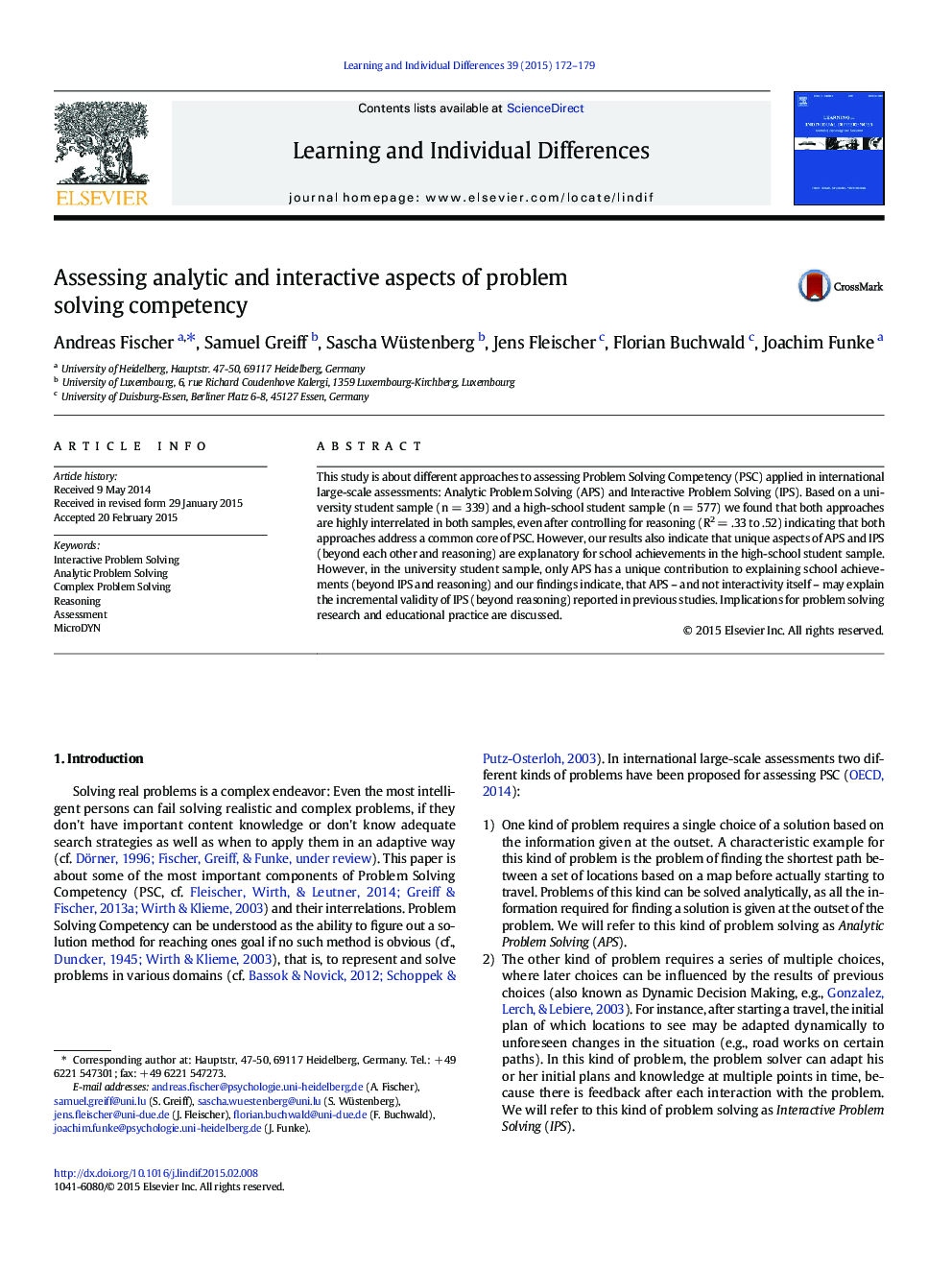| Article ID | Journal | Published Year | Pages | File Type |
|---|---|---|---|---|
| 364554 | Learning and Individual Differences | 2015 | 8 Pages |
This study is about different approaches to assessing Problem Solving Competency (PSC) applied in international large-scale assessments: Analytic Problem Solving (APS) and Interactive Problem Solving (IPS). Based on a university student sample (n = 339) and a high-school student sample (n = 577) we found that both approaches are highly interrelated in both samples, even after controlling for reasoning (R2 = .33 to .52) indicating that both approaches address a common core of PSC. However, our results also indicate that unique aspects of APS and IPS (beyond each other and reasoning) are explanatory for school achievements in the high-school student sample. However, in the university student sample, only APS has a unique contribution to explaining school achievements (beyond IPS and reasoning) and our findings indicate, that APS – and not interactivity itself – may explain the incremental validity of IPS (beyond reasoning) reported in previous studies. Implications for problem solving research and educational practice are discussed.
